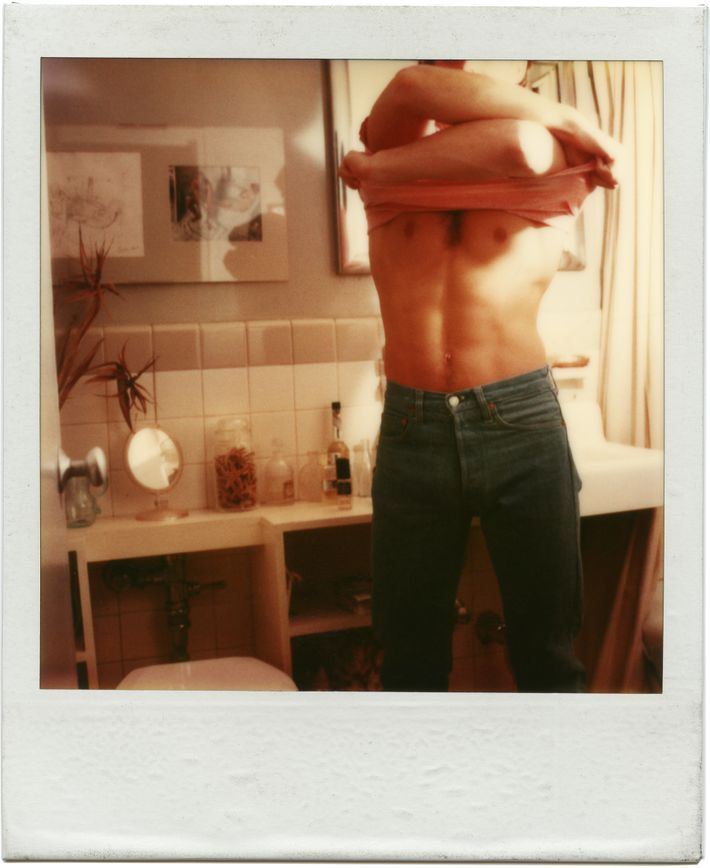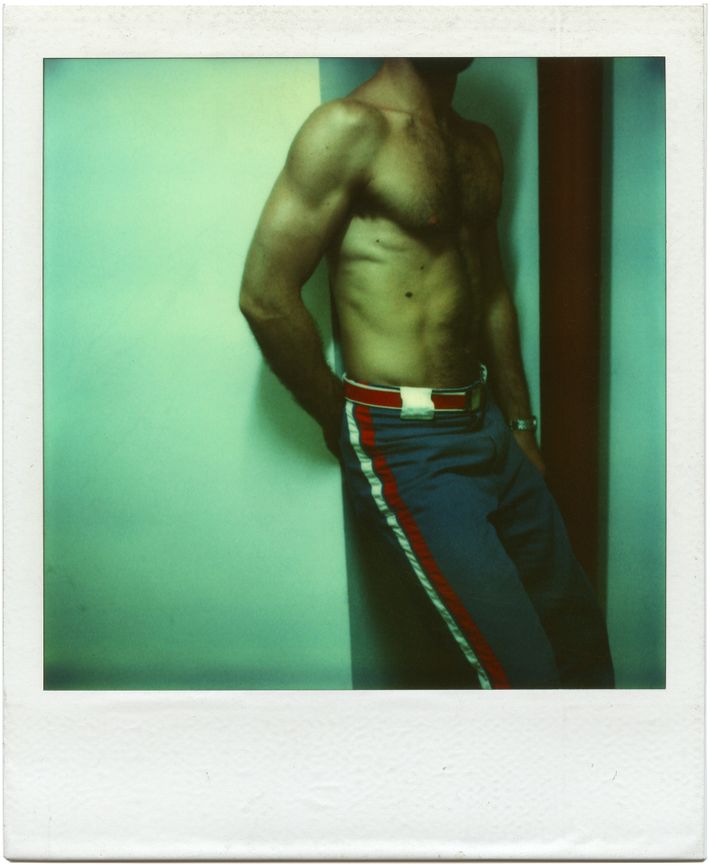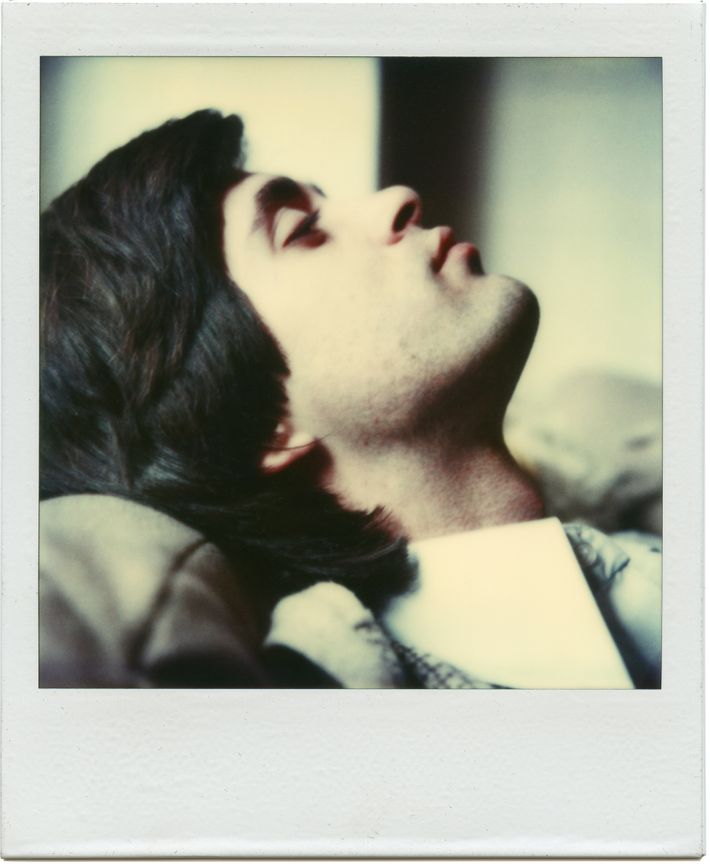
The publication, in 2013, of Tom Bianchi’s book Fire Island Pines Polaroids: 1975–1983, with its languorous vision of before-the-fall, pre-AIDS gay male sensuality, happened to coincide with the arrival of Truvada, the once-a-day prophylactic pill that in almost every case prevents HIV infection. That summer, as I walked the same boardwalks in Fire Island as his men in Speedos (or often less), I kept thinking about that book and about how an entire generation of gay men — at least the ones with health insurance — would come of age without fear of being stalked by a deadly plague that had killed so many of the beautiful men in those photographs.
I met Bianchi, and his husband, Ben Smales, on Fire Island, a place I avoided when I first moved to New York and came out, both because it was too expensive for me and because I found the prospect of all that retro sexual abandon threatening. I was trained by fear of HIV to not let myself get too crazy. But Bianchi, despite or perhaps because of what he went through, was a sort of sexual idealist (and not just because he seemed to have a knack for only photographing men with a certain kind of ideal body). He wrote in the introduction to the Fire Island book that “by submitting to our intense desire for one another, we were creating a new world based on love.” (He also acknowledged, “We did a lot of what I call fucking for self-esteem in those days, forgivable given our youth.”)
Now Bianchi has a new book, of Polaroids he took in the off-season, when he lived in an apartment at 63 East 9th Street. (There is a show of the photos as well, at Johannes Vogt Gallery, that opened on June 6.)
He’d at first hesitated to publish these, most of which are set in his tastefully decorated apartment, where his fuck buddies would come and go, perhaps because they felt less like a fantasy than the ones in Fire Island. These have more of a meditative intimacy, post-coital and almost shy. And, at least compared to most of my modern-day, app-enabled sexual encounters, they seem to be about lingering, not just getting it done. In the introduction for the new book, Bianchi, who’d found the Pines and took up the Polaroid while working as a lawyer for Columbia Pictures, wrote, “We seemed inevitably heading to a more playful and loving way of being … Perhaps we were naïve to think our experience would directly lead to a new, more tolerant world.”
Fast-forward to 2019 and his Instagram, which often shows photos of naked men of his and Smales’s acquaintance, keeps getting censored for violating corporate community standards, much to his outrage. Bianchi remembers a time when the photos he took of his friends could have gotten him in trouble with the government. “I was only half a generation away from being censored back then,” he says of the 1960s and 1970s, when free speech won out over the old obscenity codes. The difference is that now, with corporations running the distribution of imagery, “there is no recourse … For me it’s insane, it’s maddening.”
As for the boy who looks a lot like Rami Malek sitting next to the TV set in his underpants on the cover of the book, “I don’t remember his name,” Bianchi says. “I kept finding out so many of the men I photographed didn’t live. I would love it if he was still alive and someone would see it and tell me.”
Below, scroll to see images from the book.
If you buy something through our links, New York may earn an affiliate commission.















